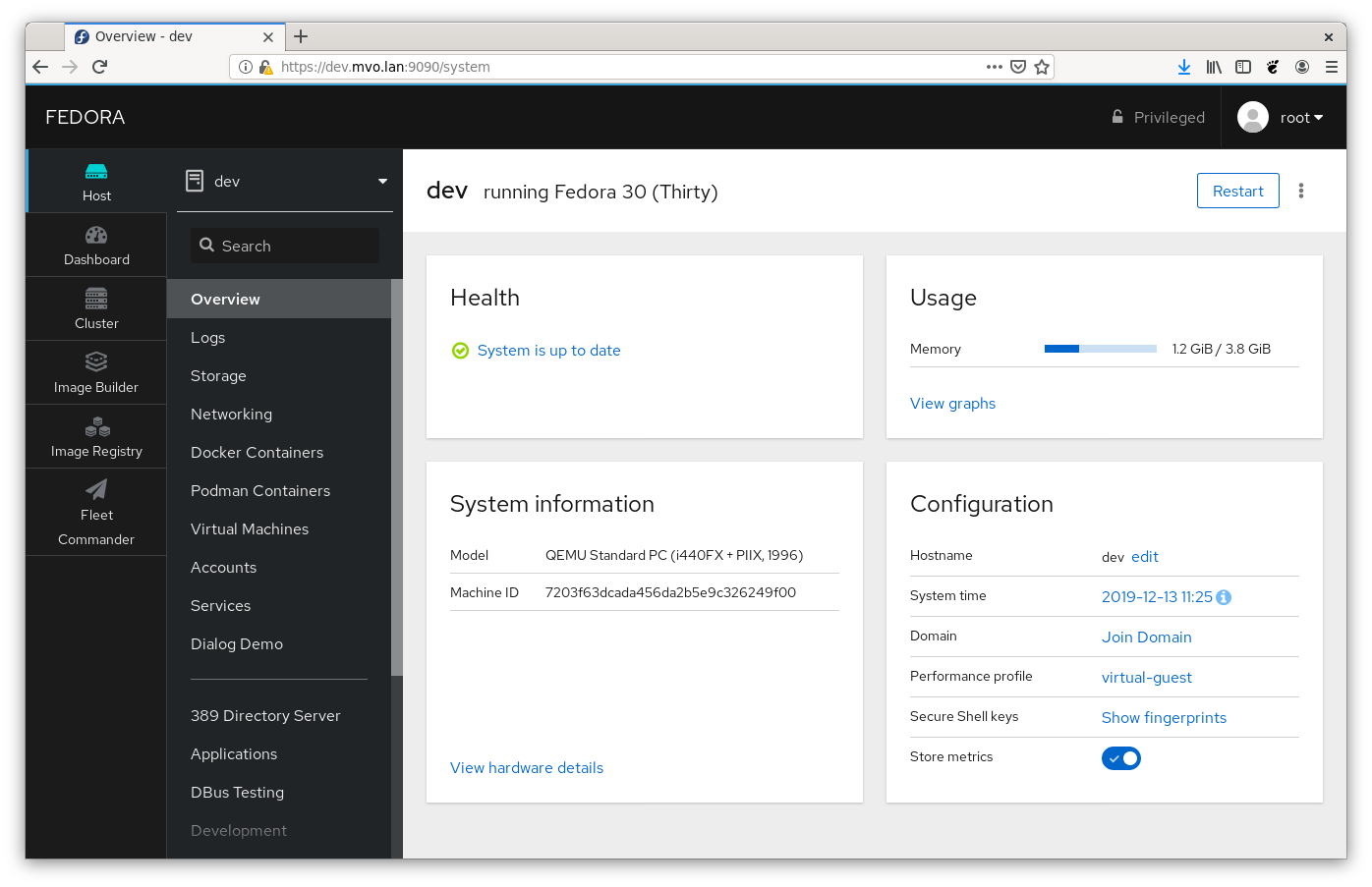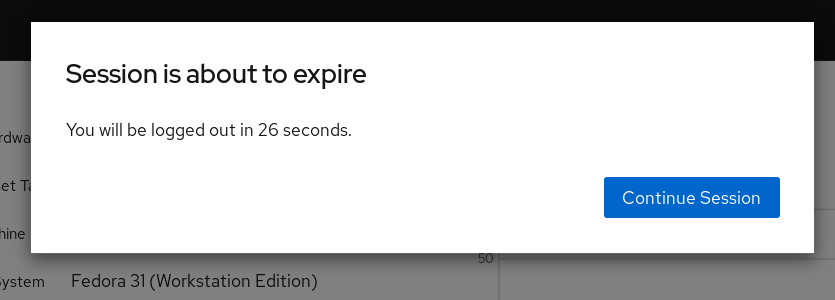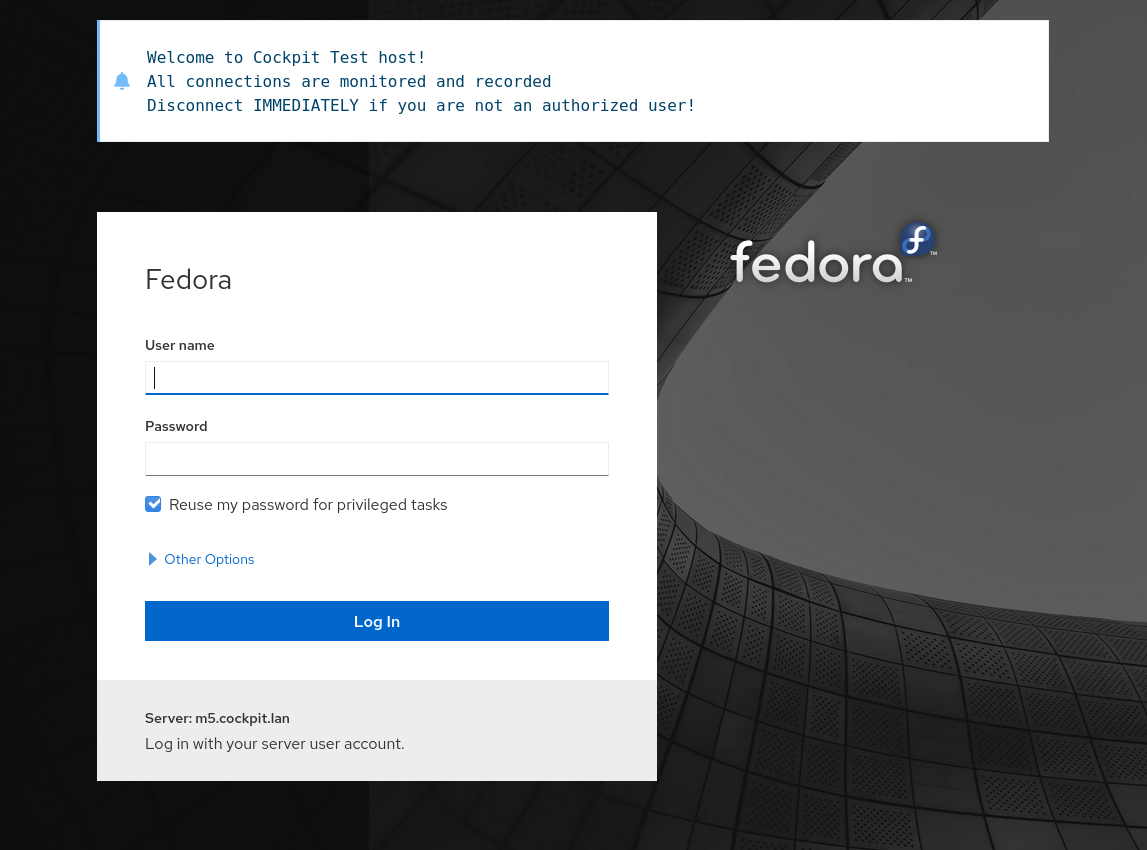Cockpit 209
Cockpit is the modern Linux admin interface. We release regularly. Here are the release notes from version 209.
A new design for the Overview page
The landing page has been completely redesigned. Information is grouped into easier to understand panels, health information is much more prominent, the resource graphs have been moved to their own page, and the hardware information page should now be easier to find.

Session timeouts
Cockpit will automatically log you out of your current session after 15 minutes of inactivity.

You can configure the timeout, in minutes, in
/etc/cockpit/cockpit.conf. For example, this will disable automatic
logouts completely:
[Session]
IdleTimeout=0
Support for banners on the login page
Like SSH, Cockpit can now optionally show the content of banner files on the login screen.

This needs to be configured in /etc/cockpit/cockpit.conf. For example:
[Session]
Banner=/etc/issue.cockpit
Support for TLS client certificate authentication
You can now log into Cockpit with a TLS client certificate that is provided by your browser or a device like a Smart Card or YubiKey.
See it in action:
And read the documentation here.
Support for Fedora CoreOS
Fedora CoreOS is a minimal and robust Fedora based operating system for hosting container workloads. It is the successor of Fedora Atomic Host, which is not supported any more.
We now fully support running Cockpit on this platform.
Please see the Running Cockpit documentation or the cockpit/ws docker hub page for how to install Cockpit on Fedora CoreOS.
List cockpit logins in wtmp/utmp
Logins via the web console are now correctly registered in utmp and
wtmp, allowing them to be visible in tools such as who, w, and
last.
[root@m1 ~]# who
root pts/0 2019-12-13 08:09 (172.27.0.2)
admin web console 2019-12-13 08:09
Dropped support for the pam_rhost module
The pam_rhosts module is not in Cockpit’s PAM stack by default (nor
in any other stack) and the remote IP is not a reliable piece of
information. NAT, VPNs, or reverse proxies (such as Cockpit’s own
cockpit-tls) all destroy the actual IP of the browser’s machine.
For these reasons, Cockpit does not set the PAM_RHOST variable
anymore when running its PAM stack.
Try it out
Cockpit 209 is available now:
